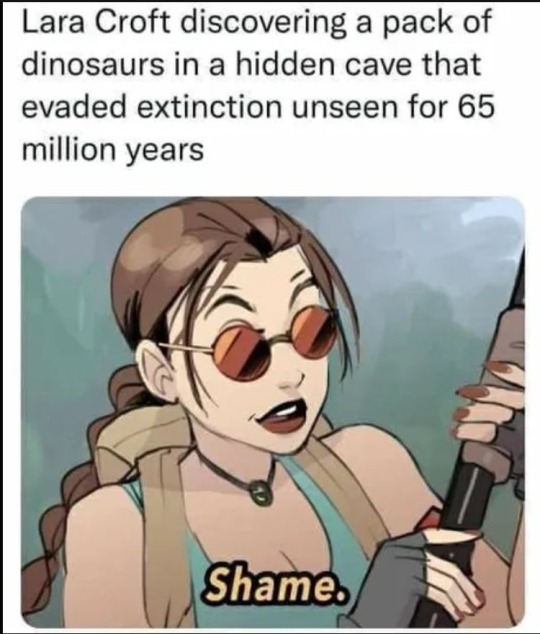Don't wanna be here? Send us removal request.
Text
The Neurodivergent Writer’s Guide to Fun and Productivity
(Even when life beats you down)
Look, I’m a mom, I have ADHD, I’m a spoonie. To say that I don’t have heaps of energy to spare and I struggle with consistency is an understatement. For years, I tried to write consistently, but I couldn’t manage to keep up with habits I built and deadlines I set.
So fuck neurodivergent guides on building habits, fuck “eat the frog first”, fuck “it’s all in the grind”, and fuck “you just need time management”—here is how I manage to write often and a lot.
Focus on having fun, not on the outcome
This was the groundwork I had to lay before I could even start my streak. At an online writing conference, someone said: “If you push yourself and meet your goals, and you publish your book, but you haven’t enjoyed the process… What’s the point?” and hoo boy, that question hit me like a truck.
I was so caught up in the narrative of “You’ve got to show up for what’s important” and “Push through if you really want to get it done”. For a few years, I used to read all these productivity books about grinding your way to success, and along the way I started using the same language as they did. And I notice a lot of you do so, too.
But your brain doesn’t like to grind. No-one’s brain does, and especially no neurodivergent brain. If having to write gives you stress or if you put pressure on yourself for not writing (enough), your brain’s going to say: “Huh. Writing gives us stress, we’re going to try to avoid it in the future.”
So before I could even try to write regularly, I needed to teach my brain once again that writing is fun. I switched from countable goals like words or time to non-countable goals like “fun” and “flow”.
Rewire my brain: writing is fun and I’m good at it
I used everything I knew about neuroscience, psychology, and social sciences. These are some of the things I did before and during a writing session. Usually not all at once, and after a while I didn’t need these strategies anymore, although I sometimes go back to them when necessary.
I journalled all the negative thoughts I had around writing and try to reason them away, using arguments I knew in my heart were true. (The last part is the crux.) Imagine being supportive to a writer friend with crippling insecurities, only the friend is you.
Not setting any goals didn’t work for me—I still nurtured unwanted expectations. So I did set goals, but made them non-countable, like “have fun”, “get in the flow”, or “write”. Did I write? Yes. Success! Your brain doesn’t actually care about how high the goal is, it cares about meeting whatever goal you set.
I didn’t even track how many words I wrote. Not relevant.
I set an alarm for a short time (like 10 minutes) and forbade myself to exceed that time. The idea was that if I write until I run out of mojo, my brain learns that writing drains the mojo. If I write for 10 minutes and have fun, my brain learns that writing is fun and wants to do it again.
Reinforce the fact that writing makes you happy by rewarding your brain immediately afterwards. You know what works best for you: a walk, a golden sticker, chocolate, cuddle your dog, whatever makes you happy.
I conditioned myself to associate writing with specific stimuli: that album, that smell, that tea, that place. Any stimulus can work, so pick one you like. I consciously chose several stimuli so I could switch them up, and the conditioning stays active as long as I don’t muddle it with other associations.
Use a ritual to signal to your brain that Writing Time is about to begin to get into the zone easier and faster. I guess this is a kind of conditioning as well? Meditation, music, lighting a candle… Pick your stimulus and stick with it.
Specifically for rewiring my brain, I started a new WIP that had no emotional connotations attached to it, nor any pressure to get finished or, heaven forbid, meet quality norms. I don’t think these techniques above would have worked as well if I had applied them on writing my novel.
It wasn’t until I could confidently say I enjoyed writing again, that I could start building up a consistent habit. No more pushing myself.
I lowered my definition for success
When I say that nowadays I write every day, that’s literally it. I don’t set out to write 1,000 or 500 or 10 words every day (tried it, failed to keep up with it every time)—the only marker for success when it comes to my streak is to write at least one word, even on the days when my brain goes “naaahhh”. On those days, it suffices to send myself a text with a few keywords or a snippet. It’s not “success on a technicality (derogatory)”, because most of those snippets and ideas get used in actual stories later. And if they don’t, they don’t. It’s still writing. No writing is ever wasted.
A side note on high expectations, imposter syndrome, and perfectionism
Obviously, “Setting a ridiculously low goal” isn’t something I invented. I actually got it from those productivity books, only I never got it to work. I used to tell myself: “It’s okay if I don’t write for an hour, because my goal is to write for 20 minutes and if I happen to keep going for, say, an hour, that’s a bonus.” Right? So I set the goal for 20 minutes, wrote for 35 minutes, and instead of feeling like I exceeded my goal, I felt disappointed because apparently I was still hoping for the bonus scenario to happen. I didn’t know how to set a goal so low and believe it.
I think the trick to making it work this time lies more in the groundwork of training my brain to enjoy writing again than in the fact that my daily goal is ridiculously low. I believe I’m a writer, because I prove it to myself every day. Every success I hit reinforces the idea that I’m a writer. It’s an extra ward against imposter syndrome.
Knowing that I can still come up with a few lines of dialogue on the Really Bad Days—days when I struggle to brush my teeth, the day when I had a panic attack in the supermarket, or the day my kid got hit by a car—teaches me that I can write on the mere Bad-ish Days.
The more I do it, the more I do it
The irony is that setting a ridiculously low goal almost immediately led to writing more and more often. The most difficult step is to start a new habit. After just a few weeks, I noticed that I needed less time and energy to get into the zone. I no longer needed all the strategies I listed above.
Another perk I noticed, was an increased writing speed. After just a few months of writing every day, my average speed went from 600 words per hour to 1,500 wph, regularly exceeding 2,000 wph without any loss of quality.
Talking about quality: I could see myself becoming a better writer with every passing month. Writing better dialogue, interiority, chemistry, humour, descriptions, whatever: they all improved noticeably, and I wasn’t a bad writer to begin with.
The increased speed means I get more done with the same amount of energy spent. I used to write around 2,000-5,000 words per month, some months none at all. Nowadays I effortlessly write 30,000 words per month. I didn’t set out to write more, it’s just a nice perk.
Look, I’m not saying you should write every day if it doesn’t work for you. My point is: the more often you write, the easier it will be.
No pressure
Yes, I’m still working on my novel, but I’m not racing through it. I produce two or three chapters per month, and the rest of my time goes to short stories my brain keeps projecting on the inside of my eyelids when I’m trying to sleep. I might as well write them down, right?
These short stories started out as self-indulgence, and even now that I take them more seriously, they are still just for me. I don’t intend to ever publish them, no-one will ever read them, they can suck if they suck. The unintended consequence was that my short stories are some of my best writing, because there’s no pressure, it’s pure fun.
Does it make sense to spend, say, 90% of my output on stories no-one else will ever read? Wouldn’t it be better to spend all that creative energy and time on my novel? Well, yes. If you find the magic trick, let me know, because I haven’t found it yet. The short stories don’t cannibalize on the novel, because they require different mindsets. If I stopped writing the short stories, I wouldn’t produce more chapters. (I tried. Maybe in the future? Fingers crossed.)
Don’t wait for inspiration to hit
There’s a quote by Picasso: “Inspiration hits, but it has to find you working.” I strongly agree. Writing is not some mystical, muse-y gift, it’s a skill and inspiration does exist, but usually it’s brought on by doing the work. So just get started and inspiration will come to you.
Accountability and community
Having social factors in your toolbox is invaluable. I have an offline writing friend I take long walks with, I host a monthly writing club on Discord, and I have another group on Discord that holds me accountable every day. They all motivate me in different ways and it’s such a nice thing to share my successes with people who truly understand how hard it can be.
The productivity books taught me that if you want to make a big change in your life or attitude, surrounding yourself with people who already embody your ideal or your goal huuuugely helps. The fact that I have these productive people around me who also prioritize writing, makes it easier for me to stick to my own priorities.
Your toolbox
The idea is to have several techniques at your disposal to help you stay consistent. Don’t put all your eggs in one basket by focussing on just one technique. Keep all of them close, and if one stops working or doesn’t inspire you today, pivot and pick another one.
After a while, most “tools” run in the background once they are established. Things like surrounding myself with my writing friends, keeping up with my daily streak, and listening to the album I conditioned myself with don’t require any energy, and they still remain hugely beneficial.
Do you have any other techniques? I’d love to hear about them!
I hope this was useful. Happy writing!
8K notes
·
View notes
Text
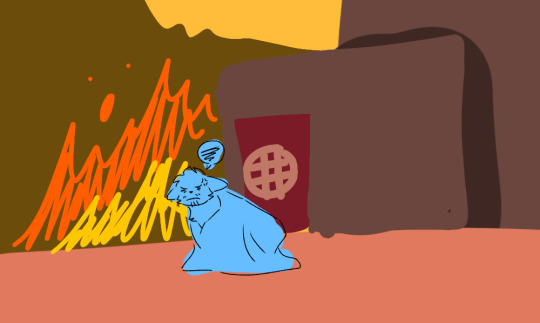
15 second doodle of ajay trying to get his beauty sleep but these asshat yalung worshippers keep interrupting his night with fire rituals and assaults on his cozy little radio relay station
9 notes
·
View notes
Text
Valley of the Yetis is something else/vpos
Ahh, a cozy game where the player is a bitter Ajay Ghale, taking place in the Himalayas where during the day you hunt, farm, and build on your little settlement, and then during the night, you're attacked by 15 rabid Yetis and an army of cultists. Then, Ajay goes to sleep, and wakes up the next day, ready to continue his cozy homestead simulator until help arrives.
12 notes
·
View notes
Text
tumblr is, if anything, the Appalachia of social media...easy to get lost, sparsely populated, out of the loop with fast-moving modern trends. Attached to tradition. Close-knit communities. Believe in "talk shit, get hit." Everyone is doing their own thing in their own obscure little holler. Prone to pulling the most inventive turns of phrase you've ever heard out of nowhere. Somebody's always starting a racket. We sometimes repel outsiders with much aggression. Lots of talk about hell and damnation to be found. Everybody tends to forget about us for some reason
103K notes
·
View notes
Text
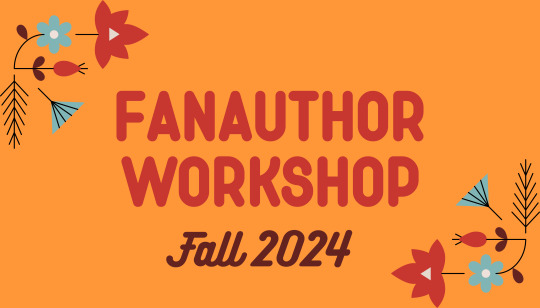
Applications now open!
The Fall 2024 Fanauthor Workshop is a 7-week writing course led by Betts (@bettsfic). The workshop lends a supportive space to writers who identify as fans to receive constructive feedback on fanfiction, original fiction, or creative nonfiction.
Where & When
We meet weekly over Zoom. You can apply for one of two sessions:
Group A: Wednesdays from Oct. 9 - Nov. 20, 12-2pm EST
Group B: Mondays from Oct. 7 - Nov. 18, 6-8pm EST
What
FAW is a feedback-oriented workshop with the occasional generative session. This means that each week we read 2 pieces submitted by participants, offer written feedback, and discuss them over Zoom. You'll be able to sign up for the week you would like to workshop your own piece, which can be anything under 6k words.
There may be weeks where, in lieu of workshopping, I present external readings and writing exercises. These sessions will be dependent on the number of participants. For example, if we have 10 participants and 6 workshop weeks, that means one week will be devoted to a reading discussion and generative activity.
I developed a workshop model that focuses mostly on affirmations and positivity, as well as descriptive over prescriptive feedback, which is to say, describing one's experience of reading rather than prescribing solutions to perceived problems. We also present improvement-oriented feedback, but avoid negativity, judgment, and pedantry. Week 1 is spent going over the model and how to give feedback.
About FAW
The first FAW was held in 2017 as an independent study in my MFA. I restarted it in 2022 and since then have led 9 sessions with a total of over 50 participants, about half of whom have participated in the workshop more than once.
Participation in the workshop includes entrance into the FAW community, an active Discord server where we host:
Ongoing accountability meetings, where we chat over Zoom about our projects and set goals for ourselves every other week
A monthly longform writing workshop, where writers can workshop any story between 6k and 100k words
A short story club, where we read and chat about original short form works
Events and activities like movie nights and co-op gaming
Scheduled write-ins and impromptu writing sprints
We also chat about writing and craft, offer resources, and share many, many pet photos.
In addition, participants of the workshop receive:
A one-hour consultation with me to go over your workshop feedback, come up with a plan for revision and/or publication, or anything else you’d like to discuss regarding your writing
Open enrollment in future workshops
Priority sign-ups for WTFS (Write the Fucking Story), WIP Cleanout, and other one-off generative sessions
Eligibility
Anyone over the age of 18 who considers themselves a participant of fandom and who is familiar with fanfiction may apply. A stable internet connection is also required.
Cost
The cost of the workshop is "pay what you can" with the recommended amount of $300. To be as inclusive as possible, I don't want money to be a deterrent for anyone interested in participating.
Payment (or notification of nonpayment) will be requested prior to the start of workshop via PayPal, Venmo, or Wise. You can also pay in installments.
How to apply
Eligibility
Anyone over the age of 18 who considers themselves a participant of fandom and who is familiar with fanfiction may apply. A stable internet connection is also required.
Application requirements
To apply, you will need:
An informal cover letter discussing your fan history and goals as a (fan)writer (more specific instructions on submittable)
A short sample of your writing, either original work or fanfiction. This may be previously published/posted
You can apply via submittable. Applications close September 15.
FAQ under the cut. Art by @emimayooo.
FAQ
Are there any content restrictions to what I can workshop?
The only restriction is word count (max 6k), with the following caveats:
If you workshop a piece in a form other than prose (for example, a script), your peers may not be able to offer constructive feedback on that aspect of the work. Participants are asked only to have a familiarity with prose.
Content warnings are required for each piece (if applicable), and participants who are uncomfortable reading certain subject matter may abstain from your workshop.
What is the time commitment of the workshop?
As a participant of the workshop, you'll be asked to:
Workshop any piece of your own prose up to 6k words, which will need to be uploaded to the group folder one week before your workshop.
Read 2 pieces per week, write out your individual crit, and attend the workshop itself.
What is the timeline of the workshop?
In week 1, we go over the syllabus and do a writing exercise. Weeks 2 through 7 will be a workshop, a discussion of an external reading, or a writing activity. Prior to the start of workshop, you'll be able to sign up for the week you would like to workshop your piece.
Structure of the sessions:
Question of the day
First workshop
Short break
Second workshop
We'll go over my workshop model and the syllabus in week 1.
Do I have to participate in the Zoom meetings (camera and mic on)?
Attending the workshop itself is required, and everyone is asked to offer at least one note of positive feedback on each piece, so mics are necessary. Cameras are preferred but not required.
You can't asynchronously participate, i.e. read the pieces and offer written feedback without attending the sessions.
Can workshop participants submit to OFIC Magazine?
Yes! Part of the reason I run the workshop is to inspire and promote the original work of fanwriters. You can follow us on tumblr @oficmag.
Who is running the workshop?
@bettsfic! In short, I lived a dreary cubicle life as a banker until I found fanfiction at 24. I loved it so much that I quit my job to get an MFA in creative writing. I loved the MFA so much that I became a writing teacher. I have some publications, awards, an agent, and 2 million words of fic on ao3. I don't have a book out yet but I'm getting there.
Currently I'm a writing coach and freelance editor. I also have a lowkey writing-related newsletter. And I've been answering writing advice asks on my blog for 10 years.
If you want an idea of the kind of writing activities I create, last summer I worked with @books on a workshop series which includes craft essays and some fun prompts.
If you're interested in my original work, my short story "Not If, When" is a good representation of my writing. For something darker, check out "Shut Up and Kill Me."
What is the workshop like?
Check out G's experience of attending the workshop. And here's some feedback from previous participants.
One final note: I'm working on updating the copy about the workshop on my website and move it over to OFIC's website. This post and Submittable has the most updated information on the workshop. If you have questions about discrepancies (or anything at all), you can shoot me an ask, DM me, or add me on Discord (I'm bettsfic there too). Or you can email me at [email protected].
187 notes
·
View notes
Note
I was reading your answer to the anon who is caught up in worrying about fic reception and perfectionism, and was wondering: what would you suggest for a fic writer who is hung up on how they view their writing? I write for myself first and view any outside praise is a bonus; I have a healthy relationship with my stats. But when I go to write, even if it's something I don't intend to post, I still get hung up on making sure the fic is up to the writing standards I set for myself.... Help?
Where do your writing standards come from? Are they realistic for you to achieve? And what will happen if you don't meet them?
A reasonable standard for writing a first draft is getting some broad strokes ideas down on the page in order to find out which parts of the story you really do want to write and which parts seem interesting but might fit better into a different story.
And unreasonable standard is to expect that you have the story fully baked and ready to be transcribed directly from your brain onto the page with no need to switch scenes around or remove a side character or add in an extra chapter to set up something that's coming later.
Writing is an iterative process. You write and then you rewrite and then you rewrite again, and eventually you'll find the story that you want to tell and the way that you want to tell it. For some people, the means gathering all the ingredients together and eventually baking a cake. For others, that means staring at a huge block of marble and gradually chipping away at it until they've got a statute. There are an infinite number of ways to go about doing it, but expecting to write the thing down perfectly from the very first attempt is just setting yourself up for failure.
I tend to draft my stories in my head before I write them down. For me, it is more transcribing than it is writing. But that's because I've spent hours or days or weeks thinking about my story and telling it to myself over and over again, without writing it down. I've worked out the kinks and adjusted the plot and figured out the characters in my head first, and even then when I've got it 90% done, I'll still adjust things when I sit down and write.
A lot of perfection is about trying to avoid the shame of failure - but you're creating your own definition of failure here, and your definition might be too broad. It might also be too negative.
Every failure is an opportunity to learn. By seeing what doesn't work, you have a better chance of finding out what does. A lot of writing is failing to tell the story you want to tell, looking at what doesn't work in the way that you told it, and then trying to tell it a different way to see if you got closer to what you're trying to say. Give yourself those opportunities to tell it wrong. What's wrong for this story might be the perfect way to tell the next one or the one after that.
Every failure also contains some smaller success. Find those successes and celebrate them. They're still worthy, even if they aren't the end goal.
If all of this is too difficult right now, then I recommend trying to write something you don't care about as much. Choose a silly idea or a ridiculous premise that you'd usually throw away because it's too different from what you usually write. If you're less invested in the story, you might be able to loosen up a little more and allow yourself to be freer and make some mistakes.
You could even set out to write something purposefully bad. Create the next My Immortal. Do all of the things you berate yourself for, but do them on purpose. Recognize that nothing bad happens to you as a result.
I'd love to hear from others in the notes. Have you experienced something like what anon is describing in their ask? How do you cope with setting standards that are too high or unreasonable? How do you push past that need to perfection and find a way to learning what is actually good enough?
183 notes
·
View notes
Note
i've seen you (or i'm pretty sure it was you) give people advice that boils down to like. just write the scenes you WANT to write, basically, and skip the rest. which i think i want to try to do more because i do NOT have the bandwidth for long or complex stories right now. but i'm wondering if there are good ways to contextualize snapshots like that? like would you suggest adding more context to the metadata/tags/author's notes? or even in the text itself, like do you have suggestions for how to establish or distill a larger AU or story into like. an introductory paragraph?
(also your blog is great, and also you do good work, and i'm sorry if i'm mixing up who said this specific thing. i might have mentioned that i don't have any bandwidth for things lmfao)
I'm forever telling people to skip the boring parts and just write what's fun. There are probably folks out there who wish I'd shut up about it 🤣
I tend to do most of my context-setting in my tags and summary, but author's notes can be useful too if you want to go that route.
To do that, you need to have a clear idea of what it is that you're actually going to write and then you also have to know what your readers need to know in order dive right in with you. But I want to put the emphasis on need to know there. you don't have to get into all of the nitty gritty details first.
If you're writing something smutty in the context of the characters being in a relationship - even though they've never met in canon - then you can tag your fic with established relationship and put in whatever tags related to smut you want, then write a simple summary of the set up. "A and B shower together - and not just to save water."
The reader doesn't need to know how they met or why they got together or when this is happening. They just want to see their ship have shower sex.
If your characters are usually in the Star Trek universe but you want to write them into a period romance, tag your work with regency AU or Bridgerton AU and then give a summary snapshot of what they'll be doing in that setting. "Janeway and Chakotay chaperone Nelix's ball, but rather than simply watching the younger people court, they find themselves the recipients of a matchmaking attempt."
Your readers already know the characters, and they can understand the setting from your tags and summary, so you're ready to get started.
The more you do it, the better you'll get at distilling your idea down into a 1-3 sentence summary.
Characters are in place doing thing and issue arises.
Villain takes action and now our heroes need to fix that
A and B are in current relationship status but inciting incident changes that
In a world where X is true, characters need to do a thing. Unfortunately, Y happens and now they are left doing something else instead. Will they be able to achieve their goal?
One of the shortest fics I've ever posted to AO3 is 37 words. It's an Original Work, so people are coming into it with no information. And yet, between my title, my tags, my summary, and the series it's a part of it is 100% intelligible to anyone in any fandom. [link] I had a joke that I wanted to tell, and I think I landed it pretty well.
Readers will fill in the blanks that you've left empty. All you have to do is give them enough information to fill in whatever you don't provide.
217 notes
·
View notes
Note
How do you make people fall in love with you
challenge them to a duel
363K notes
·
View notes
Text
idk i think what is interesting about astarion to me is the fact that you have a guy who started out an asshole (normal type) and then spent two hundred years in a very carefully and specifically crafted (by the writers of the game) Become A Terrible Person Or Die nexus. like it wasn’t just a Torment Nexus, he wasn’t just in hell, i feel like this is very important not to forget, he was in hell but it was specifically a hell designed to, over time, kill the empathy of anyone trapped in it, kill their brain’s ability to prioritize other peoples’ survival, to numb one’s conscience.
and then he gets yanked directly out of that nexus and despite that the fact that he spent, again, two hundred years in a situation that was sort of a rock tumbler for the human soul, there’s still a pebble left in there. and it’s a pebble that can be grown if placed in the right environment and provided with a support network.
so i think it becomes interesting because it really does i think force you to start thinking about the limits of free will even on as basic a level as the human personality. i think the fact that he becomes such a different character based on player choice, that his end morality is so hugely dependent on player choice, is uhhh. a big part of what the devs were going for probably.
it makes a lot of people really uncomfortable to acknowledge some bad people would be good people if literally nothing changed except they had a good support network and different circumstances. especially because it means the opposite is also true. which is even more uncomfortable.
you know that part in the beginning of fellowship of the ring where gandalf is talking about how gollum is ultimately only like that because of the ring and gandalf thinks his story is sad? astarion is kinda like if they sexualized gollum.
36K notes
·
View notes
Text
The computer is a machine built for looking at pictures of fish you wouldn't otherwise see. Anything else you can do with a computer was an accident and unintended
82K notes
·
View notes
Text
Working on my novel and couldn’t figure out why it felt so empty. I didn’t have any filler. It was all 100% plot. The characters only interacted when necessary. I didn’t prattle on about the scenery or how the birds sounded. I had all my fuller stuff that I loved saved in another file because I “didn’t need it”.
Y’all, I knew this existed in TV shows but it didn’t hit me until this that everything is being whittled down. We are so starving for filler that we snap up anything. I unload all mine on Tumblr or keep it in a massive Google Docs. It SUCKS.
Honestly? Death to plot necessity. Revive filler. Revive unnecessary interactions. Revive just vibing with characters sometimes. I don’t want to just consume the plot and I don’t want to just create the plot either.
16K notes
·
View notes
Photo
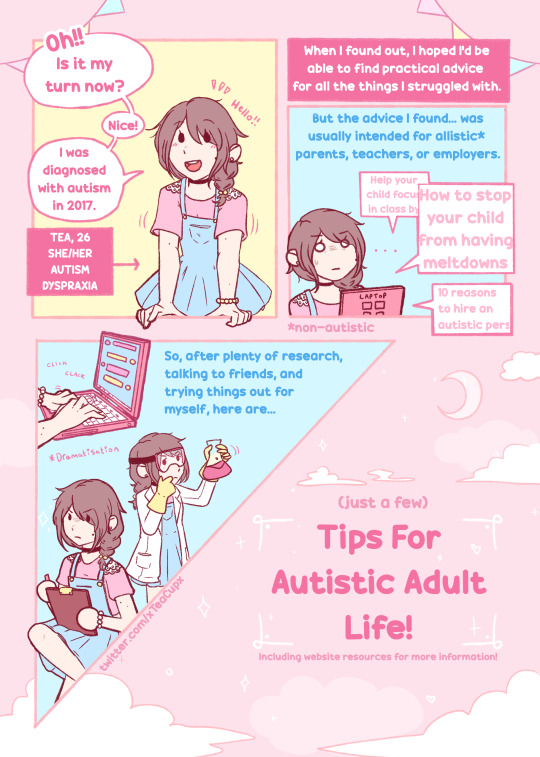
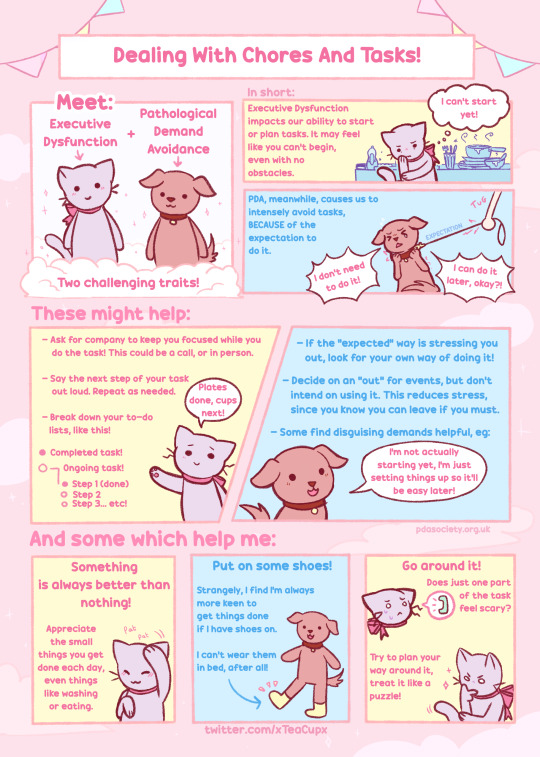
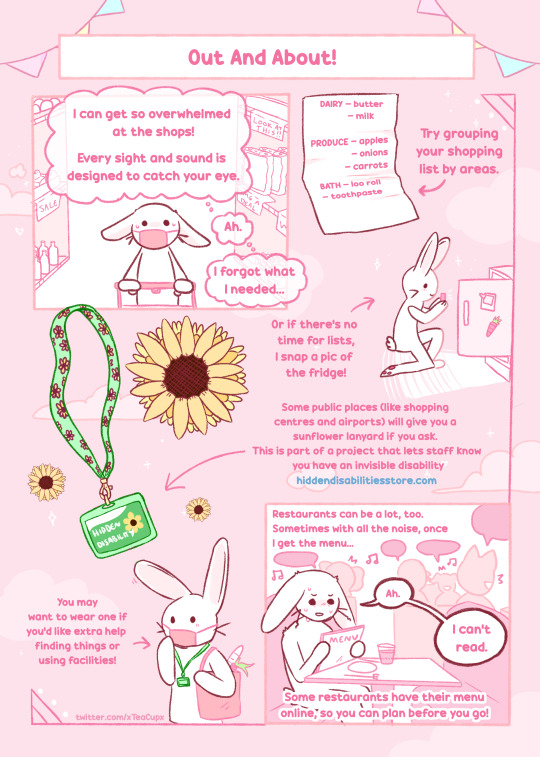
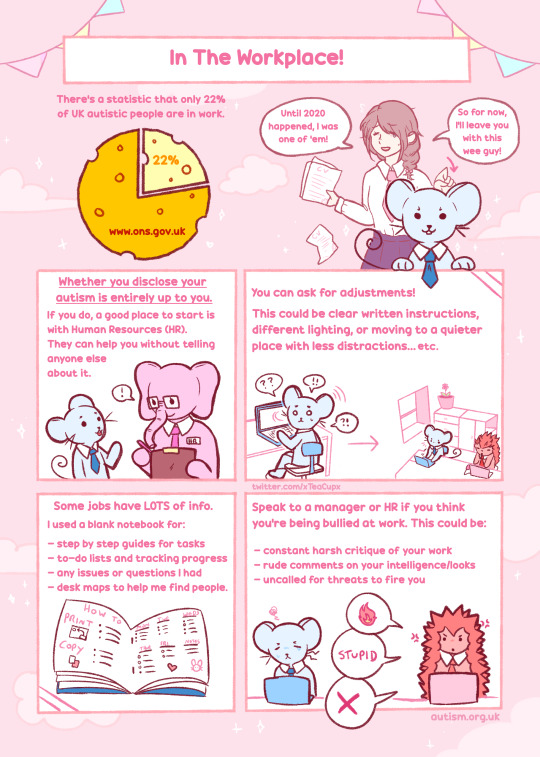
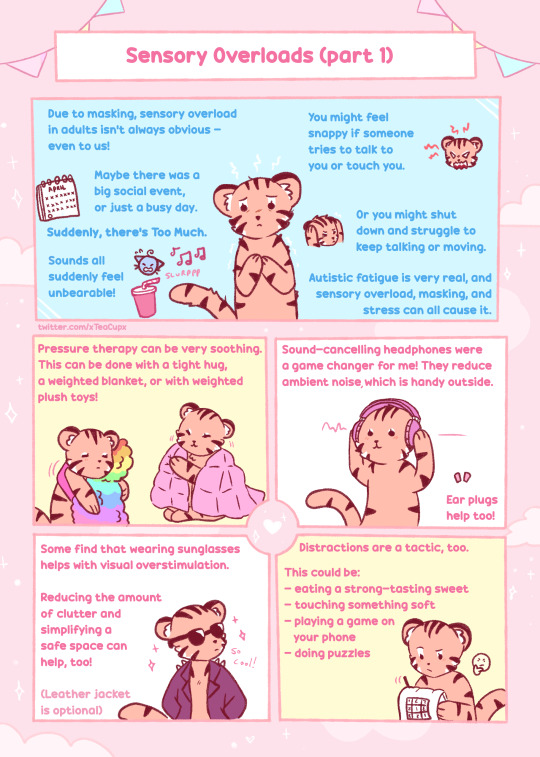
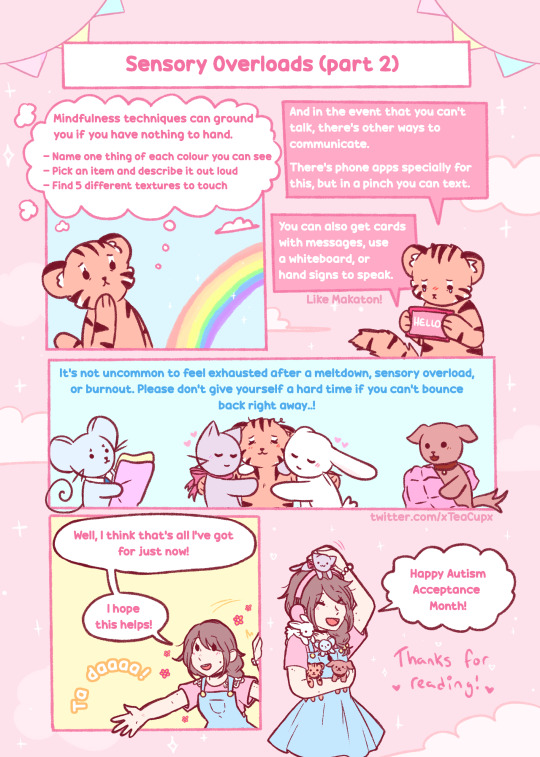
I decided to create something that I wish I had when I first got diagnosed with autism - so here’s my comic for ASDComicTakeover! You can find out more about the project here!
Keep reading
69K notes
·
View notes
Text
you’re sitting across from me in a shitty diner in anywhere, america, and i watch you pour too much creamer in your coffee and i think “i love you.” you look up, catching me staring, and for a moment i think i’m brave enough to say it, but i take too long and the moment passes. i take the balled up straw wraper and flick it at you, pretending that was my plan all along. you laugh. i never want to go another day without hearing that laugh. i think i will have all the time in the world to say it.
261K notes
·
View notes
Text
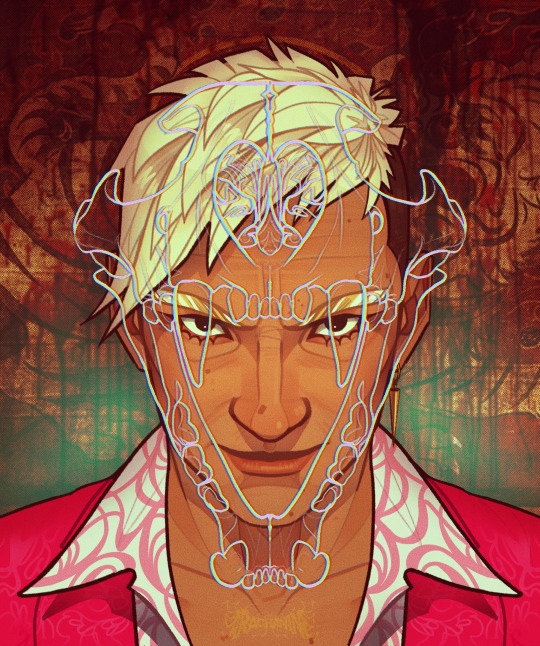
if u ignore the fact it’s troy baker then he’s pretty cool
343 notes
·
View notes
Text
write bad fanfic. write mediocre fanfic. write fanfic that a thousand people before you have already written. write niche fanfic. write fanfic that only a few people will read or understand. write fanfic just for you. write fanfic just for a friend. write ocs. write self-inserts. the fact that you’re taking the time and energy to put your ideas into the world is amazing and people who shame you for it need to find better ways to spend their time.
30K notes
·
View notes
Note
If the primary colors were to get into a fight, which would win and why?
good question would this include the additive and subtractive models? red vs blue vs yellow vs green vs cyan vs magenta
15K notes
·
View notes
